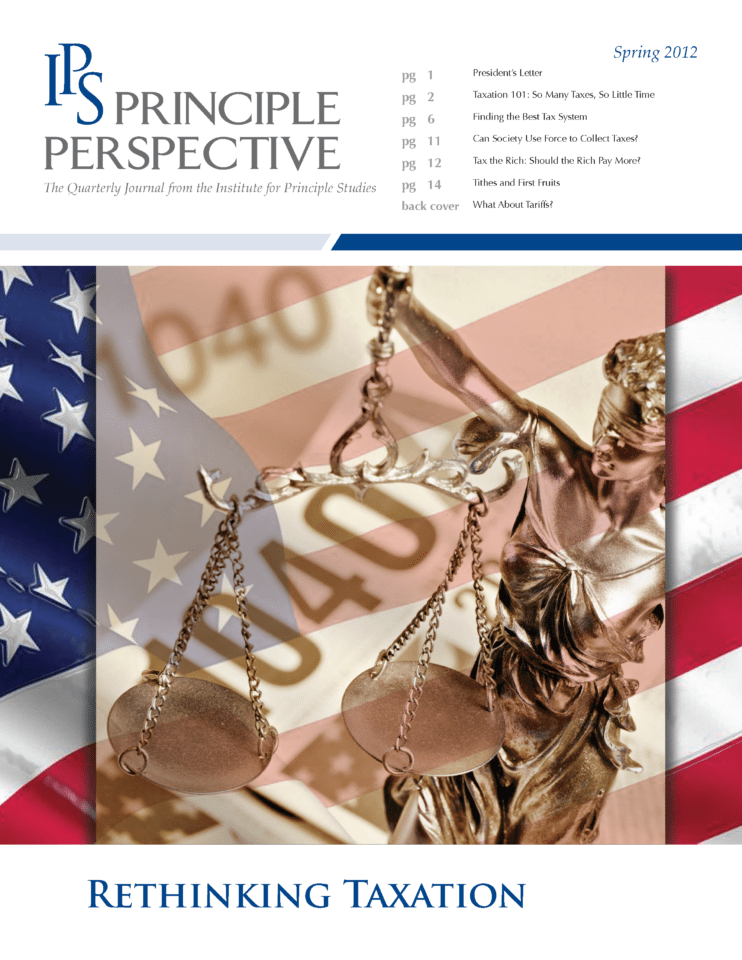Rethinking Taxation
Death and taxes may be inevitable in life, but this fact doesn’t excuse us from our responsibilities to handle both of these eventualities in a prudent and judicious manner. Our legal system endeavors to establish clear, cautious standards for dealing with issues of life and death—our procedure for trying a capital crime being just one example. In like manner, we should be no less deliberate with our tax policy. Citizens have never enjoyed (and probably never will enjoy) paying taxes, but if some taxation is going to be necessary, we should endeavor to find the best way to pay (and collect) taxes. Not all methods of taxation are created equally, as we will discuss in more detail in a later article.
Tax systems can either produce or reduce poverty, they can help or hinder economic prosperity, and they can defend or destroy liberty. Both government and citizens have a moral duty to implement tax systems that do no harm to our fellow man. Citizens who also happen to be Christians have more knowledge and therefore carry an additional burden to advocate in favor of tax systems that meet scriptural standards. Our present tax system makes almost every possible tax mistake. Our tax system is inefficient and wasteful, it encourages people to lie and cheat, it discourages production, it violates property rights, it favors special interests, it infringes on the privacy of citizens, and it hides the real cost of government. But none of these evils are necessary. There are methods of taxation that avoid almost all of these problems.
Before we can identify the best system of taxation, however, we must first understand some basic tax principles. Fundamentally, we must understand the four broad categories of taxation: taxes on the person, taxes on property, taxes on exchange, and taxes on actions. A study of the nature of each of these categories will provide considerable insight into our later attempt to determine the best method of taxation.
Read our entire in depth analysis by clicking the link below:
You will have access to the feature article in addition to topical articles
View Full Issue
